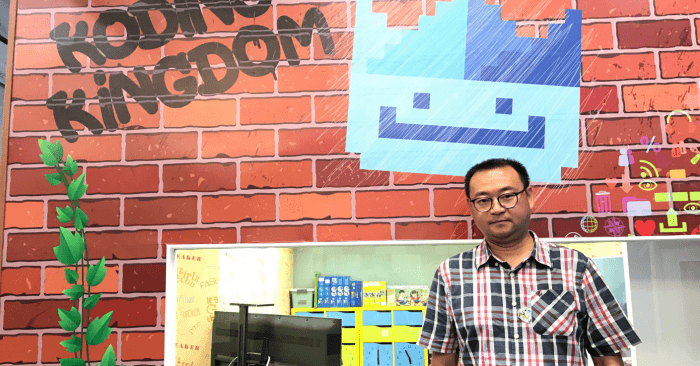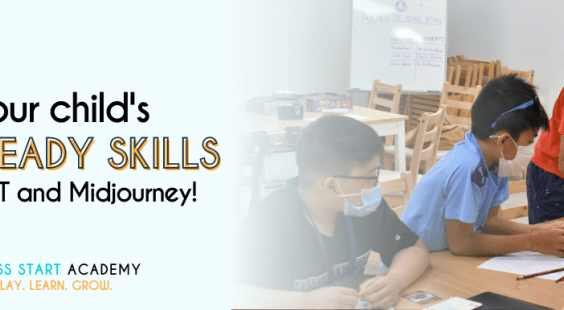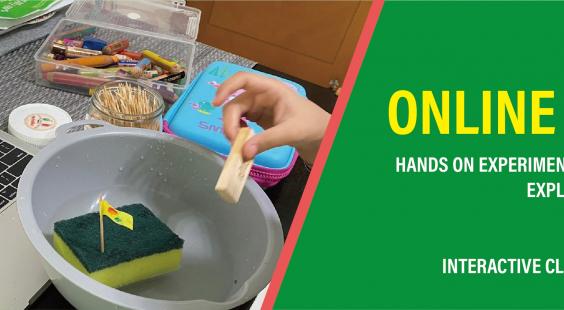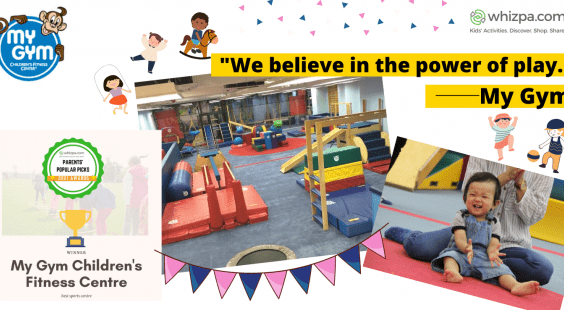
STEM Education Classes and Workshops for Kids - Koding Kingdom
With the Hong Kong government’s plan to turn Hong Kong into a “Smart City”, STEM (Science, Technology, Engineering and Mathematics) education has become a hot topic for educators and parents alike. Whilst STEM education is critical to securing Hong Kong’s future as a Smart City, it is less clear how it should best be delivered to the city’s youth who will be the driving force behind this transformation. John Huen, founder of Koding Kingdom, offers some insight on how STEM education can be implemented.
Born and raised in Hong Kong, John studied Engineering at the University of Hong Kong and Management at the University of Oxford. Early on in his career, John joined CITIC Pacific Limited, and was sent to Shanghai to oversee the company’s telecommunications investments in the late 1990s and early 2000s. It was during this time that he developed a great interest in the computer/video game industry. The games sector was just in its early stages of development in China when John made the move from CITIC to become CEO of two Nasdaq-listed gaming companies. Six years ago, John also founded his own web games company in Shenzhen, which he subsequently exited. Returning to Hong Kong to raise his two young children, John had a desire to be involved in an education-related field. Thus the idea of establishing Koding Kingdom was born.
Koding Kingdom is what John calls a “Youth Technology Education Business” - a term which encompasses STEM education, coding, robotics and more. Although he had previously developed businesses in the gaming sector, John was inspired by the realization that software is not just an entertainment tool, but a powerful learning tool as well. “Coding is related to games – it is all about software and its interaction with young people. I like to think of teaching coding as a way to nurture minds” he explains. With five years of experience teaching coding to kids in Hong Kong, Koding Kingdom is well-placed to help move STEM education forward. However, there are significant challenges presented by both the traditional educational infrastructure in Hong Kong and entrenched public perceptions that still need to be addressed before STEM education can be widely and effectively implemented.
Although the Hong Kong government recognizes the need to promote STEM education and is heading in the right direction, the challenge of putting an effective program in place extends beyond just providing funding. The government will need to develop clear guidelines to ensure that students are exposed to each component of STEM - including technology and engineering - at the primary and secondary school levels. There must also be the right infrastructure in place to deliver STEM education properly, and more work needs to be done on developing a solid plan. John points out that within the framework of the traditional Hong Kong education system, technology is very difficult to teach well. “Many of the current generation of teachers have not really received proper formal training in technology. We can see a lot of technology teachers in local schools who did not actually study computer science as a subject in school themselves, but have just been assigned to teach technology. The most experienced teachers are not teaching technology or computers, but are focused on teaching the core subjects such as science, maths, liberal studies, etc.”
On the other hand, the barriers to delivering STEM education to young people through the Hong Kong education system do present an opportunity for private sector companies like Koding Kingdom. If parents see the importance of technology/coding/STEM education and they have the economic resources, they will seek out better quality education programs and courses in the private sector. So what is the public perception of STEM education, and how far will parents go to seek it out?
Unfortunately, many parents also have not had any technology education themselves, and there is a common misperception that STEM education is just a type of vocational training that will lead to a very specific career path like computer programming, for example. Parents need to understand that technological skills are just as important as other core skills such as reading, writing, calculating, etc. Fortunately, as parents learn more about the importance of STEM, perceptions are also changing. “Parents are smart consumers”, John says. “For certain subjects, they assume that the schools cannot keep up with international developments in education due to local policies and standards. They understand that the private sector can do some of the things that schools can’t. For example, keeping up with general technology trends and rapid technological developments, and also providing students with the right environment to learn about technology.”
As parents become more aware of international technological developments, they will seek ways to equip their children with relevant skills as well. John notes that “five years ago, nobody in Hong Kong was talking about STEM, Machine Learning, Artificial Intelligence, the Internet of Things. But today, even in my primary and secondary school curriculums, I need to include these types of content.”
Koding Kingdom promotes a “gamified” learning platform to provide a stimulating environment for kids. Introducing coding and STEM content to children through the use of robots and games like Minecraft creates familiar and fun environments that encourage learning. Different approaches are applied to teaching coding to different age groups. At the kindergarten level, coding is introduced through visual, hands-on activities, and games are used to train logical thinking. Primary school students are exposed to software and start working with more visual programming tools like Scratch and App Inventor before eventually moving on to more complex language-based tools. At this level, the educational materials are a combination hardware and software so that kids can see how their coding translates into practical applications. Secondary school students are taught programming languages like Python.
With the experience it has gained from being one of the early players in the Youth Technology Education space in Hong Kong, Koding Kingdom is developing a STEM education ecosystem built on the three pillars of Training, Certification, and Competitions.
Training is geared towards 5-15 year olds, and delivered through a variety of programs. For students learning coding as an extracurricular activity during the school year, Koding Kingdom offers a well-structured, layered curriculum with clear learning pathways. The curriculum is framed under computer science themes such as IoT (Internet of Things), VR/AR (Virtual Reality/Augmented Reality), AI (Artificial Intelligence), Wearable Technology, etc. These themes define course content, and encourage students to apply the programming languages they have learnt to solving problems. Classes are taught in English by technology experts who are native English speakers. In addition to offering their own coding camps during school holidays, Koding Kingdom also partners with leading Silicon Valley STEM educator iD Tech to run their renowned STEM summer camps in Hong Kong and Singapore. Plans are in place to expand the iD Tech partnership to Korea and Taiwan in 2019.
Koding Kingdom’s certification program allows secondary school students to earn MTA (Microsoft Technology Associate) Certification that externally validates their technology skills. MTA Certification is exam-based, which offers 10 topics for students to choose from. Students can choose and pick the ones they are interested in to take the exam. Once exam is passed, students get the certification. The certification program is popular with parents who want international certificates to boost their children’s qualifications for university applications and job prospects.
Competitions are an area that Koding Kingdom is actively developing to give coding students additional avenues to test their technology skills. One new initiative is an international micro:bit coding competition that Koding Kingdom is planning in conjunction with organizations in Singapore and Thailand.
As the market evolves, Koding Kingdom is keen to continue exploring creative business collaborations. In the past, for example, they have partnered with New World Development to use Minecraft to study Chinese history. They have also developed tailor-made STEM workshops for IB schools such as Victoria Shanghai Academy and the ESF schools.
Besides learning STEM skills through courses, John Huen believes that children can acquire skills outside of the classroom as well. “For my own kids, I don’t just encourage them to take classes, but I want STEM learning to be integrated into their daily life. The key goal of STEM education is to ensure they are not afraid of technology. They should like technology, and also have the confidence to use technology to solve problems in daily life” he says. “I encourage my children to do things for themselves - for example, repairing a broken fan using a screwdriver and spanner. They learn from hands-on, practical experience. Fixing bicycles, replacing batteries, buying light bulbs – these are all opportunities for STEM learning”.
John believes passionately that people from all walks of life should have access to STEM learning. As a result, he has also founded STEM Academy, a non-profit organization that allocates a proportion of it’s educational services free-of-charge to special needs and underprivileged children such as ethnic minorities, new immigrants, and deaf children. As John puts it, “technology creates a level playing field regardless of your background – technology can bridge the digital gap.”
To find out more about STEM education in Hong Kong, be sure to attend the Sunday Kiss x Whizpa STEM Parent Workshop on September 29, 2018 (conducted in Cantonese). Please also share a review on whizpa.com if you have had experience with Koding Kingdom!








